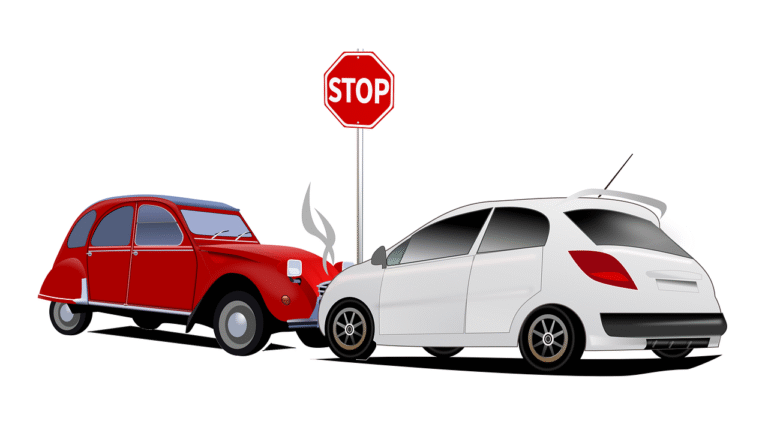If you own a vehicle in India, you’re probably aware of the importance of having vehicle insurance. It’s not just a legal requirement. Whether you’re driving through crowded city streets or embarking on a long road trip, accidents can happen at any time, and being financially prepared is essential.
But with so many policies and coverage options available, how do you choose the right one for your needs? In this guide, we’ll break down everything you need to know about vehicle insurance in India, from the types of policies available to how to select the right coverage for your car. Keep reading to make an informed decision and ensure your vehicle is always protected.
Why is Vehicle Insurance Necessary?
In India, vehicle insurance isn’t just a good idea; it is a legal requirement. The Motor Vehicles Act mandates that every vehicle on the road must have at least third-party insurance. This type of insurance protects you in case your vehicle causes injury, death, or property damage to others. Without this coverage, you could face hefty fines and legal complications.
However, third-party insurance doesn’t cover your own vehicle in the event of an accident, theft, or natural disaster. For this, a comprehensive or own-damage policy is required. Choosing the right insurance policy ensures that you meet the legal requirements and safeguard your financial well-being.
Types of Vehicle Insurance Policies in India
When it comes to vehicle insurance, you can select from different types of coverage, each offering varying levels of protection. Here are the main options available:
- Third-Party Liability Insurance
This is the most basic type of vehicle insurance and is mandatory by law. It provides coverage against damage or injury caused to a third party, including their vehicle, property, or person. Third-party insurance is relatively affordable but does not offer any protection for your own vehicle.
- Comprehensive Insurance
Comprehensive insurance provides a wider range of coverage. It not only covers third-party liabilities but also protects your own vehicle against damage caused by accidents, fire, theft, or natural disasters. This type of policy often includes additional benefits such as coverage for medical expenses in case of injuries to the driver and passengers.
Comprehensive policies are more expensive than third-party insurance but provide greater peace of mind, knowing that your vehicle is covered in almost every scenario.

- Own Damage Cover
This is an optional addition to a third-party policy that provides protection for your own vehicle in case of accidents, natural calamities, or theft. If you already have third-party insurance, you can purchase own-damage cover to extend your coverage.
- Standalone Own Damage Policy
A standalone own-damage policy offers coverage specifically for your vehicle, without any third-party liability coverage. This option is often chosen by individuals who already have third-party coverage but wish to add protection for their own vehicle.
Key Benefits of Vehicle Insurance
Investing in vehicle insurance comes with several key benefits that can save you money and hassle in the long run. Here are some of the main advantages:
- Financial Protection
Vehicle insurance protects you from the financial burden of repair costs and medical expenses in the event of an accident. Without insurance, you could be forced to pay for damages out of pocket, which can be a significant financial strain.
- Legal Compliance
As mentioned earlier, vehicle insurance is a legal requirement in India. Not having insurance could lead to fines, penalties, or even legal action. A valid insurance policy ensures that you stay compliant with the law.
- Protection Against Natural Disasters
India is prone to natural disasters such as floods, earthquakes, and storms. Comprehensive vehicle insurance offers coverage for damage caused by these events, which would otherwise be expensive to repair.
- Theft and Vandalism Coverage
If your vehicle is stolen or damaged due to vandalism, a comprehensive insurance policy can cover the cost of replacement or repairs. This can help you avoid the financial burden of replacing your car.
- Peace of Mind
Knowing that you’re covered in case of an emergency provides peace of mind, whether you’re driving in busy city traffic or on a long road trip. This emotional benefit can often outweigh the cost of premiums.
How to Choose the Right Vehicle Insurance Policy
Selecting the right vehicle insurance policy can be overwhelming with the variety of options available. Here are some key factors to consider when choosing a policy:
- Vehicle Type
The type of vehicle you own plays a significant role in determining the cost and type of coverage you’ll need. For example, the insurance premium for a luxury car will be higher than that for a standard model. Make sure the policy you choose aligns with your vehicle’s specifications.
- Coverage Needs
Consider your specific needs when selecting coverage. If you only need basic third-party protection, a third-party liability policy might suffice. However, if you want full protection for your vehicle, a comprehensive policy would be more appropriate.
- Claim Settlement Ratio
Look at the insurer’s claim settlement ratio, which is a key indicator of how efficiently they process claims. A higher claim settlement ratio is a good sign of reliability and customer satisfaction.
- Add-ons and Riders
Insurance providers often offer additional riders to enhance your coverage. These can include protection for engine damage, zero depreciation, or roadside assistance. Carefully review the available add-ons to ensure they meet your needs.
- Premium Costs
While cost shouldn’t be the only consideration, it’s important to choose a policy that fits within your budget. Compare premiums across different providers to find the best value for the coverage offered.
Common Vehicle Insurance Exclusions
While vehicle insurance provides substantial coverage, it’s important to understand its limitations. Some common exclusions include:
- Damage due to driving under the influence of alcohol or drugs
- Damages caused by illegal activities or racing
- Wear and tear from regular use
- Mechanical and electrical breakdowns
- Damages occurring outside the country
Before finalising your policy, make sure you read the terms and conditions to fully understand what is and isn’t covered.
How to Renew Your Vehicle Insurance
Renewing your vehicle insurance is a straightforward process. Many insurers offer online renewal options, allowing you to complete the process from the comfort of your home. Ensure you renew your policy before it expires to avoid any gaps in coverage.
During the renewal process, make sure to:
- Review your Coverage Needs: If your vehicle has changed or if your needs have evolved, this is a good time to update your coverage.
- Check for Discounts: Some insurers offer discounts for safe driving, no-claim bonuses, or multi-policy discounts.
- Compare Premiums: Use comparison tools to find the best deals.
Many online insurance brokers make the renewal process even easier. They allow you to compare various policies and choose the one that best suits your requirements.
Secure Your Vehicle and Future Today
In summary, vehicle insurance is an essential investment for car owners in India. It not only ensures compliance with legal requirements but also offers financial protection, peace of mind, and protection against unforeseen events.
For a hassle-free experience, consider turning to online insurance brokers like Jio Insurance Broking Ltd., which offer a simple, quick, and reliable way to compare policies and secure your vehicle. Don’t wait until it’s too late, get your vehicle insured today and drive with confidence!


